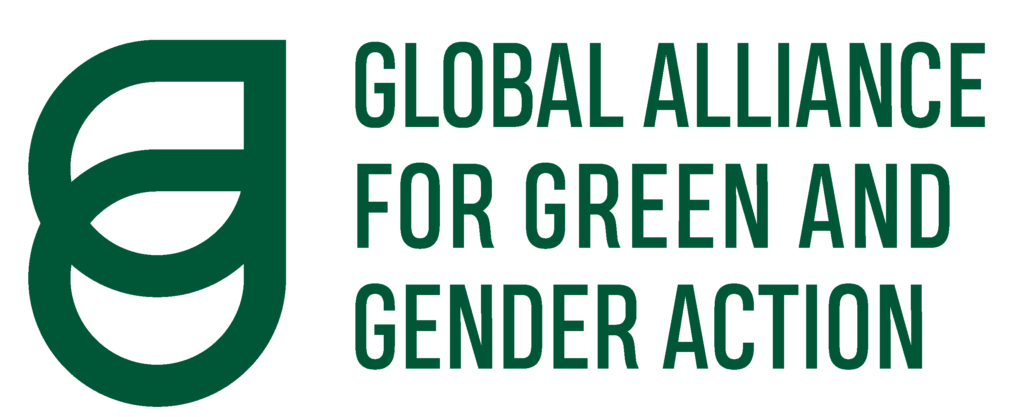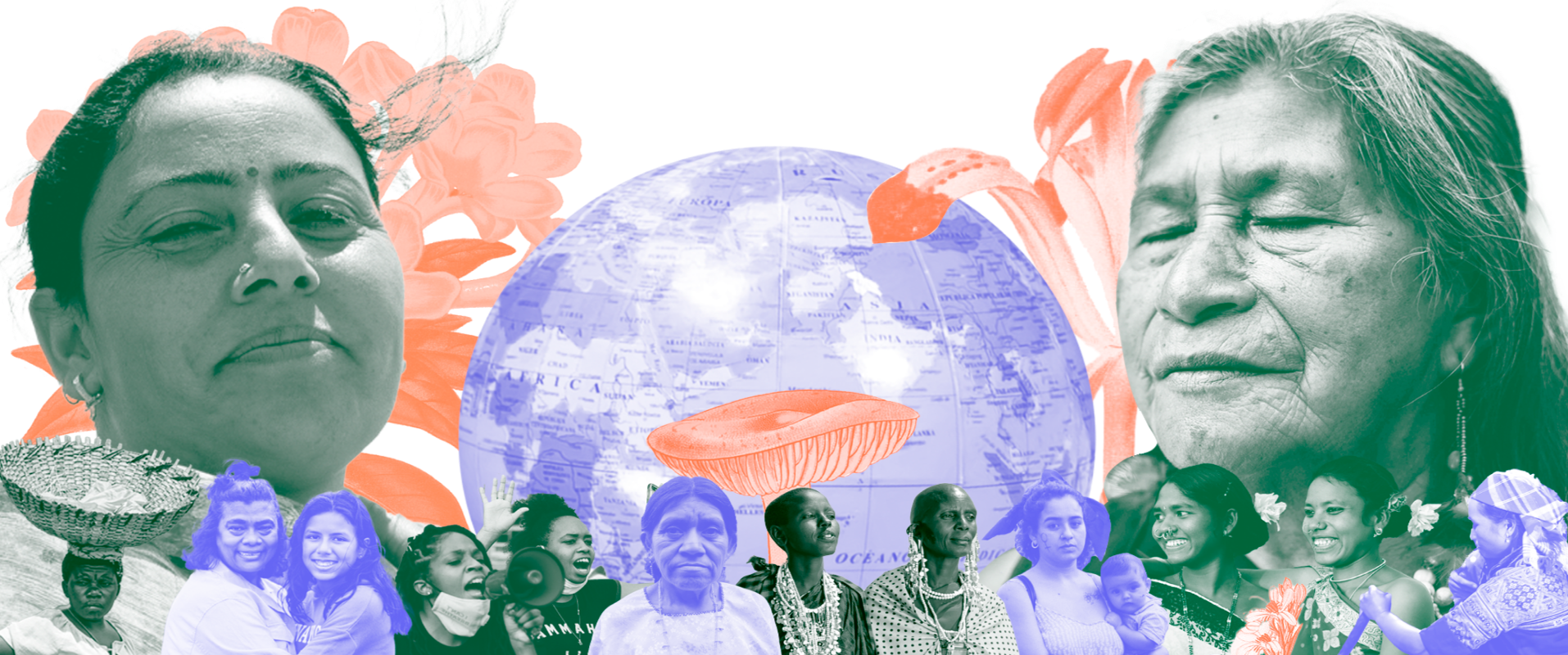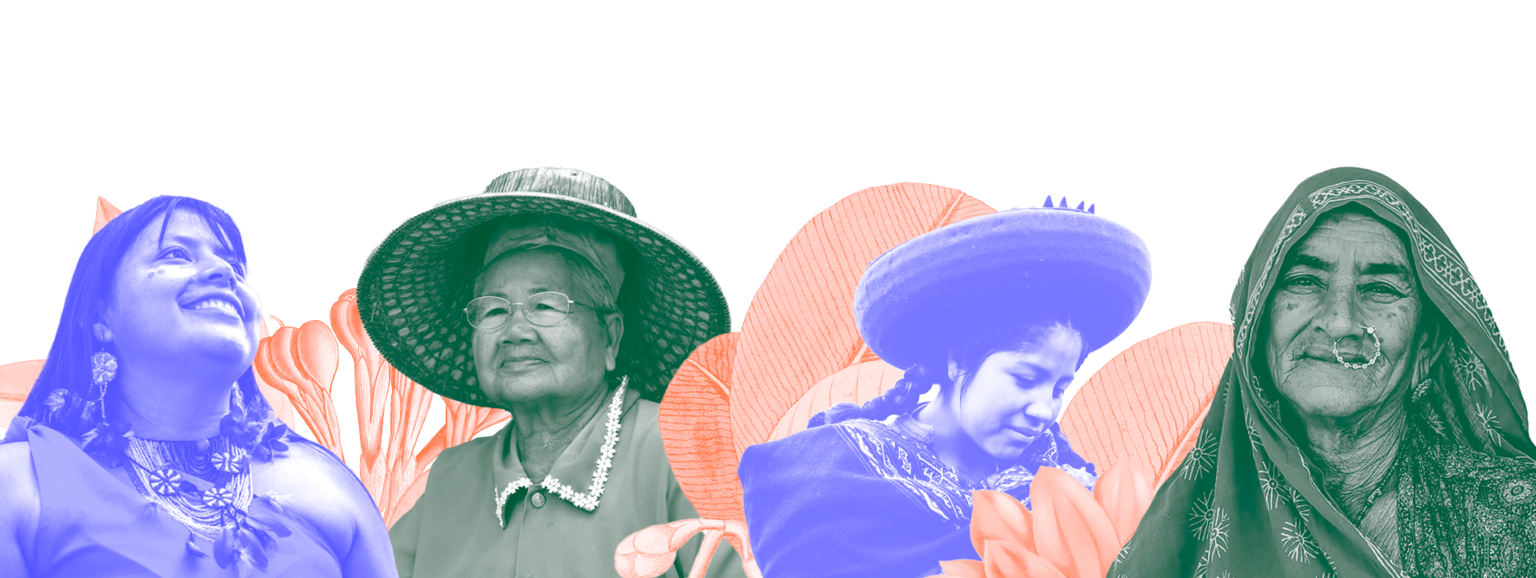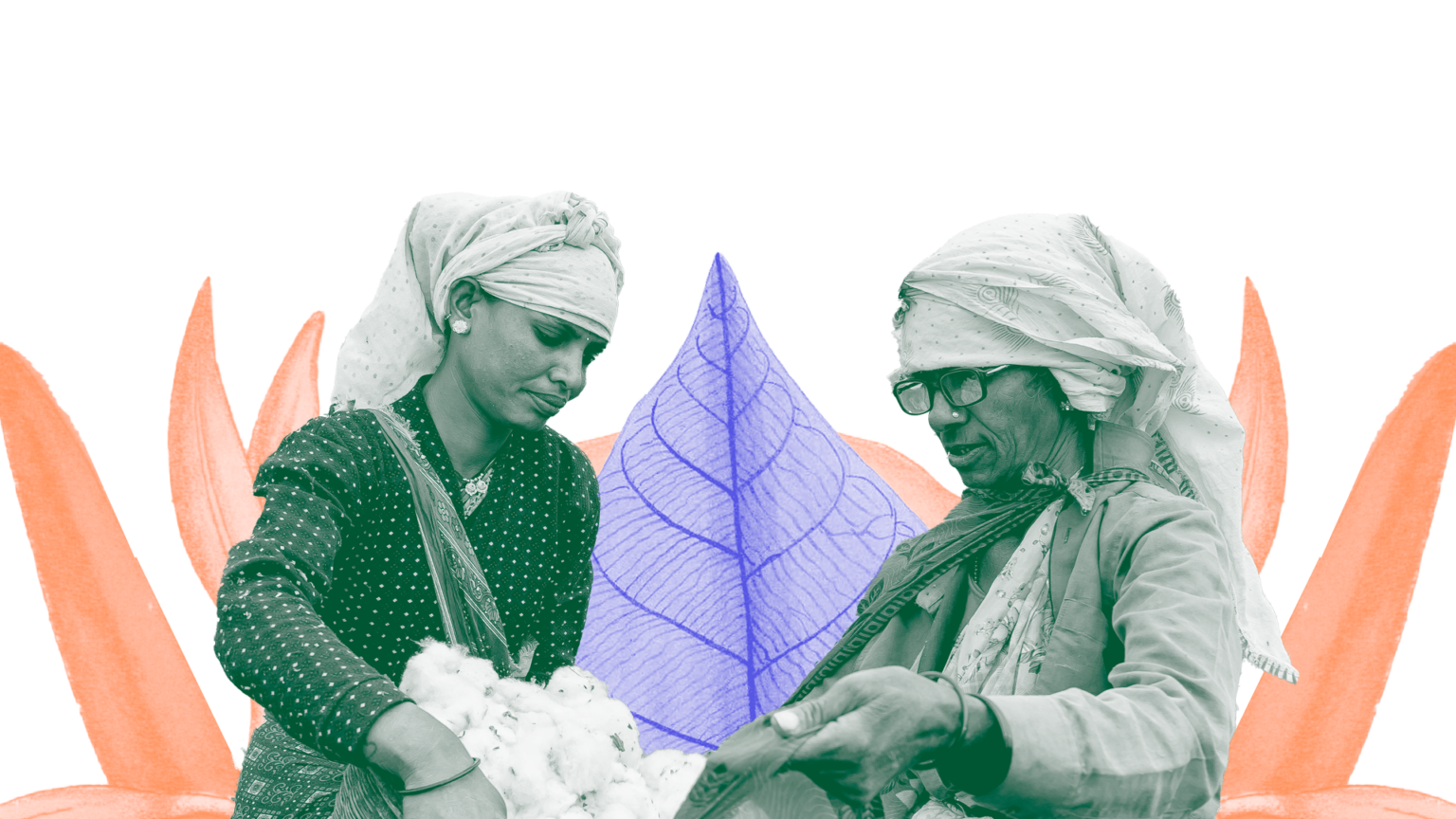


CLIMATE & GENDER
Climática y de Género
Dar Es Salaam, Tanzania
DEL 27 AL 29 DE SEPTIEMBRE DEL 2024

Background & Context
En 2013, Prospera INWF y Global Greengrants Fund (GGF) formaron una alianza para unir a fondos ambientales y de mujeres, junto con activistas de justicia climática y derechos de las mujeres. Con el objetivo de compartir estrategias entre movimientos y construir relaciones duraderas. Después de un año de preparación, se organizó conjuntamente una Cumbre sobre Mujeres y Clima en Bali, la cual marcó importantes tendencias en nuestro campo: fue clave para consolidar la Alianza Global por la Acción Verde y de Género (GAGGA), impulsar la investigación conjunta de 2018, Nuestras Voces, Nuestro Ambiente, realizada por GGF y Prospera sobre el financiamiento de la acción ambiental de las mujeres, y promover la publicación de numerosos artículos en medios, estudios de caso y una mayor concientización sobre los vínculos entre justicia de género y ambiental. El New York Times publicó dos artículos sobre la Cumbre, y comenzó a surgir financiamiento para esta intersección.

LA OPORTUNIDAD
A raíz del décimo aniversario de la Cumbre de Bali, y coincidiendo con el Bienal de Prospera de este año, GGF, Prospera y GAGGA realizaron un nuevo análisis de las tendencias de financiamiento y los datos en la intersección de género y medio ambiente. Los resultados revelan un financiamiento muy limitado para esta intersección (50 millones de dólares de un total de 4.1 mil millones), y que la mayoría de las subvenciones provienen de fondos públicos (incluidos miembros de Prospera y GGF). Esto subraya la necesidad de prestar mucha más atención a la urgencia y relevancia política de la justicia de género y ambiental, así como de destinar mayores recursos financieros, humanos y políticos a esta intersección. La Cumbre de 2024 busca generar un mayor impulso, construir voluntad política, brindar claridad conceptual entre los participantes y aprovechar objetivos y estrategias comunes hacia la acción colectiva.

QUIÉNES SOMOS

Es una de las principales redes de financiamiento para la justicia ambiental de base en el mundo, compuesta por 27 consejos consultivos y más de 230 activistas que apoyan esfuerzos liderados por las comunidades para proteger el planeta y los derechos de las personas.

Es una red política global de 48 fondos feministas y de mujeres audaces, interseccionales, diversos y autónomos, que impulsan la transformación al financiar, apoyar y acompañar movimientos liderados por mujeres, niñas, personas trans, intersex y no binarias, y colectivos, principalmente en el Sur y Este Globales.

La Alianza Global por la Acción Verde y de Género es una red diversa de fondos de mujeres, fondos de justicia ambiental, organizaciones no gubernamentales (ONG) y organizaciones comunitarias lideradas por mujeres. Su objetivo es garantizar los derechos de las mujeres al agua, la soberanía alimentaria, y a un entorno limpio, saludable y seguro, movilizando el poder colectivo de los movimientos de justicia de género, climática y ambiental en todo el mundo.

A quién reuniremos
Objetivos de la Cumbre
Fomentar el diálogo para construir una narrativa política colectiva alineada con la perspectiva del Sur Global.
Desarrollar un comunicado que avance la acción de género y justicia climática en el contexto actual.
Acordar formas para que el comunicado avance y utilizarlo como herramienta de organización y promoción para los años venideros.
Ofrecer a los donantes una nueva perspectiva sobre qué, a quién, dónde y cómo financiar la acción por la justicia climática y de género.
Metodología
Esta Cumbre ha sido diseñada como una reunión de trabajo. Tendremos algunas sesiones plenarias, pero la mayor parte del tiempo los participantes se dividirán en cinco “Grupos de Trabajo Temáticos” simultáneos desarrollados en base a los comentarios de los participantes a través de la encuesta y las entrevistas. Cada grupo de trabajo temático tendrá un facilitador, un tomador de notas y copresidentes. A lo largo de la Cumbre, los facilitadores trabajarán para entrelazar el trabajo de los cinco Temas para apoyar el objetivo de crear un comunicado colectivo que luego los participantes puedan llevar adelante de diferentes maneras.

Grupos de Trabajo por Temas

Defensa de los bienes comunes (tierra, bosques, océanos y otros cuerpos de agua).
Los bienes comunes son recursos que son accesibles para todes y que son conservados y gestionados colectivamente para el disfrute de las generaciones presentes y futuras, incluyendo la tierra, bosques, océanos y otros cuerpos de agua. Estos recursos enfrentan crecientes amenazas de invasión y extinción debido a actividades capitalistas destructivas que incluyen la privatización, la extracción, la apropiación de tierras, la contaminación y la deforestación, entre otras. La carga de defender los bienes comunes recae desproporcionadamente sobre las mujeres y los grupos marginados, incluidas las comunidades indígenas, que también son las más afectadas por su destrucción, tanto en su trabajo remunerado como no remunerado.
Preguntas:
- ¿Qué es necesario hacer a nivel local y global para evitar la destrucción continua de los bienes comunes y, por lo tanto, aliviar la carga que recae sobre las mujeres para protegerlos?
- ¿Qué hay que hacer para transformar los sistemas económicos globales y mejorar los medios de subsistencia de las mujeres?
- ¿Cuáles son los principales desafíos a la hora de financiar trabajo transformador para defender los bienes comunes?
Soberanía alimentaria y transformación de economías rurales en el Sur.
Históricamente, los alimentos han jugado una doble función: por un lado son una necesidad fundamental para la vida humana, por el otro son un catalizador potencial para la transformación económica. La producción alimentaria para su venta ha jugado un rol fundamental para los medios de subsistencia y el desarrollo de las economías durante cientos de años. Hoy en día, los pequeños agricultores gestionan el 60% de la producción mundial de alimentos y el 80% de la tierra cultivable total, y sin embargo son algunas de las personas más pobres del planeta. A través de normas y acuerdos comerciales, construidos en torno a la Organización Mundial del Comercio (OMC), las corporaciones multinacionales han monopolizado el comercio de alimentos y perjudicado a los pequeños agricultores. A través de estas mismas herramientas, el espacio político y los ingresos internos de los países del Sur Global han sido destruidos y los pequeños agricultores y pescadores han tenido que valerse por sí mismos. Esto ha tenido efectos devastadores en términos de pobreza e inseguridad alimentaria generalizadas, así como respecto del cambio climático: las corporaciones multinacionales que obtienen ganancias desproporcionadas por el comercio de alimentos han podido además perpetrar apropiaciones de tierras en áreas rurales necesitadas desesperadamente de estímulos económicos. Las economías rurales necesitan transformarse para resolver el doble problema de la inseguridad alimentaria y la pobreza generalizada, junto con algunas de las tasas más altas de desigualdad de género a nivel mundial.
Preguntas:
- ¿Cómo puede una transición energética, incluyendo acceso de las mujeres a la energía, mejorar los medios de subsistencia rurales?
- ¿Pueden los minerales críticos impulsar procesos de desarrollo soberano en el Sur Global?
- ¿Qué falta en el trabajo que se está realizando alrededor de minerales críticos y la transición energética, y cuáles son algunas estrategias para conseguir financiamiento para estas áreas?

Transición energética, minerales críticos y transformación económica del Sur Global.
Priorizar las utilidades por encima de la naturaleza no solo ha resultado en la crisis climática, sino que también ha pretendido transformarla de una amenaza existencial a una oportunidad económica, provocando que la desigualdad económica global se filtre en "falsas soluciones" climáticas. Este empuje por una “transición justa” a través de energías renovables y 'minerales críticos' ha creado una nueva frontera para las corporaciones multinacionales y otros poderosos intereses privados. Los países del Sur, particularmente en África y América Latina, son la fuente de vastos depósitos minerales y combustibles fósiles críticos, cruciales tanto para permitir la transición a las energías renovables como para financiar el desarrollo económico en el Sur. Estas fuentes de riqueza son controladas y extraídas principalmente por corporaciones multinacionales del Norte, sin ningún impacto positivo en las capacidades o necesidades nacionales. Al mismo tiempo, si éstos depósitos fuesen aprovechados, financiados y regulados adecuadamente por los Estados, éstos podrían potencialmente contribuir a una transformación económica equitativa y resiliente y ofrecer mejores oportunidades de subsistencia para el Sur Global.
Preguntas::
- ¿Cómo puede una transición energética, incluyendo acceso de las mujeres a la energía, mejorar los medios de subsistencia rurales?
- ¿Pueden los minerales críticos impulsar procesos de desarrollo soberano en el Sur Global?
- ¿Qué falta en el trabajo que se está realizando alrededor de minerales críticos y la transición energética, y cuáles son algunas estrategias para conseguir financiamiento para estas áreas?

Finanzas climáticas: una cuestión de justicia.
A medida que el cambio climático empeora rápidamente, trayendo consigo impactos sociales y ambientales devastadores que exacerban la desigualdad de género, las pérdidas y los daños, así como las necesidades de adaptación y mitigación de los países del Sur Global, son enormes. Las estimaciones de la carga financiera creada por la emergencia climática en el Sur Global muestran que el gasto requerido supera con creces los totales combinados de la cooperación para el desarrollo, el financiamiento en condiciones favorables y la ayuda para el desarrollo, y es aproximadamente equivalente a lo que se gasta actualmente en costos de servicio de la deuda. Esta injusticia se suma a una responsabilidad por emisiones marcadamente desigual: los países industrializados continúan con los mismos patrones de emisiones al tiempo que retienen la compensación financiera adeudada en virtud de la responsabilidad histórica y la deuda ecológica. No parece probable que el Fondo para Pérdidas y Daños, aunque histórico simplemente en su creación, entre en funcionamiento lo suficientemente rápido como para cumplir las promesas que de él dependen.
Preguntas::
- ¿Cuáles son algunas estrategias para el financiamiento climático no basado en deuda?
- ¿Cómo pueden los Estados del Sur Global depender de sus propios recursos para financiar las inversiones climáticas y sociales necesarias?
- ¿Cómo podemos mejorar y financiar el trabajo interseccional entre movimientos social en materia de justicia climática, de género, de deuda y de comercio?

Cuidado e interdependencia para las comunidades en primera línea del cambio climático.
Las defensoras de primera línea, incluyendo a las mujeres defensoras de los derechos humanos y del medioambiente, se enfrentan a Estados, multinacionales y políticos en el poder, para tratar de hacer una diferencia frente a las múltiples e interconectadas crisis a las que nos enfrentamos. Están soportando la carga de este trabajo mientras se enfrentan a amenazas a sus vidas, su trabajo y sus medios de subsistencia en un espacio cívico cada vez más reducido o cerrado. Para sostener sus luchas continuas por su supervivencia, por sus comunidades y por las tierras, océanos y territorios donde habitan, estos activistas crean redes de apoyo, seguridad y protección. El costo que conlleva este trabajo en su salud física y mental es enorme, pero a menudo quienes gozan del beneficio de este trabajo fuera de sus comunidades, incluidos los donantes, no suelen tomarlo en serio. Esto invalida la interdependencia entre los pueblos y los ecosistemas e invisibiliza el trabajo emocional que realizan desproporcionadamente las mujeres. El trabajo de cuidados está y siempre ha estado en el centro de la resistencia comunitaria, que es más necesaria que nunca, pero el trabajo de cuidados necesita ser redistribuido entre las familias, el Estado y el mercado.
Preguntas::
- ¿Cómo se vincula el cuidado con la sostenibilidad ecológica y con las alternativas al actual e inequitativo modelo económico?
- ¿Cuáles son algunas estrategias para conseguir que este tipo de trabajo sea financiado y aprovisionado como parte necesaria y fundamental del activismo continuo?
Todos los temas tendrán en cuenta cuestiones interseccionales como la movilización de recursos, la resiliencia y adaptación, mitigación y respuesta a desastres, y justicia económica.
Agenda de la Cumbre
*Habrá una cena de bienvenida el 26 de septiembre a las 7 p.m.
DÍA 1
Septiembre 27
Septiembre 27
6:30 – 8:30 | Desayuno |
8:30 – 9:45 | PLENARY (KIBO ROOM) Grounding Ourselves: In Conversation with Grace Scorey, Maimuna Kanyamala and Pontso Mafethe Bridging Contexts: Welcome & Overview, In conversation with Carla Lopez, Alexandra Garita, Laura Garcia and Terry Odenhal PLENARY (KIBO ROOM) Grounding Ourselves: In Conversation with Grace Scorey, Maimuna Kanyamala and Pontso Mafethe Bridging Contexts: Welcome & Overview, In conversation with Carla Lopez, Alexandra Garita, Laura Garcia and Terry Odenhal |
9:45 – 10:15 | Descanso |
10:15 – 13:30 | PLENARY (KIBO ROOM) Opening Panel Gender, Climate and Environmental Justice Movements: Perspectives from activists Asad Rehman, Noelene Nabulivou, Maria Matui Transition to BREAKOUT THEMES WORKING GROUPS
Connecting with each other, developing a collective understanding of each theme and where we locate ourselves in the same. |
13.30-15:00 | Almuerzo |
15:00 – 16:30 | Identifying gaps and key priority areas in each theme
BREAKOUT THEMES WORKING GROUPS
Closing (In breakout groups) |
16:00 – 16:30 | |
16:30 -17:00 | |
17:00 – 17:30 | Descanso |
17:30 – 18:00 | Free |
18:00 – 19:00 | Comité de Redacción |
19:00- 20:30 | Cena |
DÍA 2
Septiembre 28
Septiembre 28
6:30 – 8:30 am | Desayuno |
8:30 – 11:00 am | PLENARY (KIBO ROOM)
Lightning Talk: Show me the money! Funding at the intersection of climate justice
Weaving Strategies with the Drafting Committee: Insights from Day 1 Learning as Regions: Articulating needs and possibilities for collaborations. (An opportunity to network)
|
11:00 – 11:30 | Descanso |
11:30 – 13:30 | BREAKOUT THEMES WORKING GROUPS
Identifying possible actions within each Theme. |
13.30-15:00 | Almuerzo |
15:00 – 16:00 | BREAKOUT THEMES WORKING GROUPS
Defense of the commons (Lake Victoria room) Food sovereignty (Kibo/Plenary room) Energy Transition (Lake Tanganyika room) Climate Financing (Zanzibar room) Caring and Interdependence (Kibo/Plenary room)
Continued- Articulating actions)
|
| |
16:00 -16:30 | Descanso |
16:30 – 18:00 | PLENARY (KIBO ROOM) Building political solidarity across the global south: In conversation with our Co-Chairs |
| |
18:00 – 19:00 | Comité de Redacción |
19:00- 20:30 | Cena |
DÍA 3
Septiembre 29
Septiembre 29
6:30 – 8:30 am | Desayuno |
9:00 – 10:30 | PLENARY (KIBO ROOM) Gender, Climate, and Environmental Justice: Perspectives and Politics from the Global South (Astrid Puentes, Jayson Porter, Maureen Penjueli, Hilda Nakabuye) Building political solidarity across the Global South (continued) |
10:30 – 11:00 | Descanso |
11:00 – 13:30 | Building political solidarity across the Global South (continued)
|
13.30-15:00 | Almuerzo |
15:00 – 17:00 | Building political solidarity across the Global South (continued)
|
17:00 – 17:30 | Descanso |
17:30 -18:00 | Celebration! |
18:00 – 19:00 | Free |
19:00- 20:30 | Cóctel / Fiesta de Clausura |
Speakers per day
DÍA 1
Septiembre 27
Septiembre 27
| 6:30 – 8:30 am | Grounding Ourselves: In conversations with Maimuna and Grace |
| Grace Scorey | Grace Scorey is a passionate advocate for women’s rights and empowerment, with a focus on pastoral communities and women around the world. Growing up in a polygamous family, she witnessed firsthand the marginalization and struggles faced by women in such environments. Determined to change the narrative and uplift women, she pursued a degree in Social Work and Administration, which laid the foundation for her career as a dedicated social worker. Her journey led her to become actively involved in the Pastoral Women Council (PWC) organization as a project coordinator, where she found a platform to amplify voices and address the needs of women in pastoral communities. Through her work, she aims to challenge societal norms and advocate for policies that promote gender equality, and access to education, healthcare, and economic opportunities for women. With her background and unwavering commitment, she embodies resilience and determination in her mission to create a more inclusive and equitable society for women. |
| Maimuna Kanyamala | Maimuna Kanyamala is a dedicated Tanzanian activist, entrepreneur, environmentalist, and feminist with over 30 years of experience advancing the rights of women, girls, children, and marginalized communities. As co-founder of Kivulini Women’s Rights Organization and founder of MikonoYetu, she has mobilized thousands to prevent gender-based violence and empowered women through economic initiatives that tackle climate change, particularly in rural areas. Recognized as a “Woman of Courage” by the U.S. Embassy in Tanzania, Maimuna has built global solidarity on issues such as gender-based violence, HIV/AIDS, and poverty. She also co-founded GreenMinds, a youth-led project promoting sustainable leadership, and currently serves as an advisor for Global Greengrants Fund, driving intergenerational efforts to address climate change. |
| Pontso Mafethe | Pontso Mafethe is the Vice President of Programs at Global Greengrants Fund. She was previously with African Women’s Development Fund, where she served as Director of Programmes. Her career also includes roles with ActionAid, Comic Relief, International Planned Parenthood Federation, and the International Union for the Conservation of Nature. Additionally, she has been recognized as one of the BBC 100 Women and is actively involved in various leadership and advisory roles within the development and social justice sectors; she is a member of Steering Committees for The Red Umbrella Fund and The Girl Generation. Pontso is currently Chair of the Programmes Committee and Board member of EMpower – The Emerging Markets Foundation Count – and Chair of the International Development Committee of the Baring Foundation. She is also a member of the Equality Fund Global Advisory Panel and the Human Rights Funders Network Global Racial Justice Advisory Network. |
| 13.30-15:00 | Opening welcome Speakers: Laura García, Alexandra Garita, Carla López, Terry Odendhal Moderator: Pontso Mafethe |
| Laura García | Laura García is the President and CEO of Global Greengrants Fund. Laura is a Mexican feminist who has advocated for human rights, social justice, and civil society throughout her career. Before joining Global Greengrants, Laura served for seven years as the Executive Director of Fondo Semillas, a Mexican nonprofit organization that finances grassroots organizations to achieve gender equality. Laura has vast experience in grassroots philanthropy, human rights, and movements for social justice, and she has co-created networks to promote community philanthropy in the Global South. She holds a Master’s Degree in International Peace and Security, from King’s College, London. She currently serves on the boards of Oxfam Mexico, Co-Impact, and the Global Fund for Community Foundations. Laura García is the President and CEO of Global Greengrants Fund. Laura is a Mexican feminist who has advocated for human rights, social justice, and civil society throughout her career. Before joining Global Greengrants, Laura served for seven years as the Executive Director of Fondo Semillas, a Mexican nonprofit organization that finances grassroots organizations to achieve gender equality. Laura has vast experience in grassroots philanthropy, human rights, and movements for social justice, and she has co-created networks to promote community philanthropy in the Global South. She holds a Master’s Degree in International Peace and Security, from King’s College, London. She currently serves on the boards of Oxfam Mexico, Co-Impact, and the Global Fund for Community Foundations. |
| Alexandra Garita | Alexandra Garita is the Executive Director of Prospera, Intnernational Netwoerk of Womens Fund. Before becoming Executive Director in 2020, Alex served as Deputy Director for three years, implementing Prospera’s current programs, consolidating the team, and influencing philanthropy to invest in more democratic ways within the women’s funding ecosystem. Previously, she worked as Advisor at the Simone de Beauvoir Leadership Institute in Mexico and was founder and President of the Board of Equis: Justice for Women. She previously founded and coordinated the feminist alliance Realizing Sexual and Reproductive Justice (RESURJ) for five years. Prior, Alex worked as Senior Program Officer, International Policy, with the International Women’s Health Coalition, led the international advocacy program at IPPF/Western Hemisphere Region and was the Mexico Program Officer at ARTICLE 19, The Global Campaign for Free Expression. An activist committed to advancing women’s human rights, Alex formed part of Decidir (Choice: Youth Coalition for Sexual Citizenship), where she protested, wrote, and advocated for young people’s rights to safe and legal abortion in Mexico City prior to the liberalization of the law. Alex has also worked at the Mexican Office of the United Nations High Commissioner for Human Rights and with the Mexican Council on Foreign Relations. She is a member of the Editorial Board of Reproductive Health Matters and holds a B.A. in International Relations from Boston University and an M.A. in the Theory and Practice of Human Rights from Essex University. |
| Carla López C. | Carla López C. is the Executive Director of the Fondo Centroamericano de Mujeres (FCAM) |
| Terry Odendahl | Terry Odendahl has spent more than 50 years bridging the gap between our natural and human worlds. She is the retired President and CEO of Global Greengrants Fund, where she served for over a decade. An anthropologist by training, Terry has held faculty positions at Georgetown University’s Public Policy Institute; the University of California, San Diego; and Yale University. She is the author or editor of four books: Charity Begins at Home: Generosity and Self-Interest Among the Philanthropic Elite; America’s Wealthy and the Future of Foundations; Women and Power in the Nonprofit Sector; and Career Patterns in Philanthropy. She has published Op-Eds for The Guardian, EcoWatch, The Chronicle of Philanthropy, The New York Times, Alliance Magazine and other outlets. Terry helmed the National Network of Grantmakers in the 1990s, and worked as a program officer at the Wyss Foundation to protect public lands in the western United States in the early part of this century. Terry is co-founder of the Institute for Women’s Policy Research in Washington, D.C., and the Institute for Collaborative Change in New Mexico. In addition to 350, she currently serves on the board of Save the Colorado. |
| Gender, Climate and Environmental Justice: Perspectives from movement activists Speakers: Xiye Bastida, Noelene Nabulivou, Maria Matui, Asad Rehman Moderator: Laura García | |
| Noelene Nabulivou | Noelene Nabulivou is a Fijian and Pacific small island/large ocean lesbian feminist Indigenous activist and community organiser for over 40 years. She is a co-founder and executive director of Diverse Voices and Action (DIVA) for Equality that works in local to global spaces and processes since 2011 for Gender justice; Sexual rights, Social, Economic, Ecological and Climate Justice. DIVA is the Co-convenor of the Pacific LBQ Working Group, Convenor of Pacific Feminist SRHR Coalition; Pacific Feminist Community of Practice, Women Defend Commons Network. Noelene is CSO Co-Chair of the Pacific Gender Coordination Mechanism. She holds many social movement roles, and her life work is for liberation, ecological balance and justice, on all territories.Noelene lives and works from Nadi, Fiji and is a mother of a fierce, fun, neuro-diverse 6yo feminist. |
| Maria Matui | Maria Matui is one of the seven women who co-founded Women Action Towards Economic Development (WATED), initially focusing on land rights for women. This work revealed deeper issues like climate change and the need for climate financing. After three years of project implementation, Ms. Matui led a climate financing study that ultimately resulted in the formation of the Coalition for Gender and Climate Change Tanzania, which amplifies the voices of marginalized women and communities in climate discussions. Her commitment to collective advocacy also led to the establishment of the Feminist School of Leadership and Climate Change. Under her leadership, WATED now hosts the broader Climate Justice Movement, bringing together key actors to address climate justice in Tanzania. Ms. Matui continues to champion gender-responsive climate solutions and works to ensure that women, especially those from marginalized communities, are integral to shaping climate policies and financing. Her vision for a more equitable world drives progress in gender equality and sustainable development, crucial for tackling climate change and creating a fairer future. |
| Asad Rehman | Asad Rehman is the Executive Director of the radical labour movement charity War on Want that for 70 years has been fighting for worker’s rights, and for social and economic justice both in the UK and globally. Asad is a veteran campaigner and has over the last 40 years been a leading figure in various movements including the anti-racist movements of the 80’s, the anti-globalisation movement, the anti-war coalition and the global climate justice movement. His intersectional work on climate justice to link climate to the fight for economic and racial justice has been pivotal to framing the fight for a just, equitable and ecological transition. He currently helps coordinate a network of movements and frontline organisations around the call for a Global Green New Deal. |
DÍA 2
Septiembre 28
Septiembre 28
| TBD | Lightening Talk: Seeds for Harvest Report |
| TBD | |
| TBD | |
| TBD |
DÍA 3
Septiembre 29
Septiembre 29
| TBD | Justicia Climática, Ambiental y de Género: Políticas y Perspectivas desde el Sur Global Speakers: Astrid Puentes, Maureen Penjueli, Hilda Flavia Nakabuye, Jayson Porter Moderator: Alexandra Garita | |
| Astrid Puentes Riaño | Astrid Puentes Riaño has a Masters degree (LL.M.) in Comparative Law from the University of Florida and in Environmental Law from the University of the Basque Country, and a law degree from the Universidad de Los Andes in Bogota. Ms. Puentes teaches at the Berta Cáceres Environmental Justice Clinic at the Universidad Iberoamericana in Mexico City, Mexico, and has more than twenty years of experience on environmental law, human rights and climate change, and the intersection of these, with a perspective of climate justice, diversity, equity and inclusion. She has worked for and with communities, environmental defenders and Indigenous Peoples in Latin America, contributing to the protection of their rights and territory, including in Brazil, Colombia, Mexico and Peru. Ms. Puentes has also advised organizations including Franciscans International and Greenpeace International. She has also collaborated with the UN, including with the United Nations Human Rights Office in Mexico, the Special Rapporteur on Human Rights and Climate Change, the Special Rapporteur on Human Rights and the Environment. She served as co-executive director of the Interamerican Association for Environmental Defense (AIDA) from 2003 to August 2021. She has published several articles and lectured at the Human Rights Academy of the American University, Washington, D.C., and at the Diploma on Strategic Litigation and Tools for the Defense of Economic, Social, Cultural and Environmental Rights of the UNAM in Mexico, among others. She was selected as a Climate Parents Fellowship Fellow from July 2022 to June 2023 and is one of the founders of Moms for Climate in Mexico City. | |
| Maureen Penjueli | Maureen Penjueli is the Co-Lead of the Pacific Network on Globalisation, a pioneering policy research and advocacy network focusing on supporting Pacific people’s right to political, economic and socio-cultural self-determination. Ms. Penjueli’s research and advocacy work revolves around the impacts of systemic and structural injustices on island nations in the region. She researches the climate emergency through the lens of deep-sea minerals and the just energy transition debate, debt and frontier-market-based climate financing mechanisms, customary land tenure, food sovereignty and oceans economy. Previously, she served on a number of boards including Greenpeace Australia-Pacific, Fiji Women’s Crisis Center, and Leadership Fiji. She is also currently an advisor to Nia Tero, and holds an environmental science degree from Griffith University, Brisbane, Australia. | |
| Hilda Flavia Nakabuye | Hilda Flavia Nakabuye is the founder of Uganda’s chapter of Fridays for Future and she organized impactful demonstrations, mobilizing youth and advocating for policy reforms to mitigate the effects of climate change. In addition to her grassroots activism, Nakabuye has played a pivotal role in elevating climate discourse on the global stage. She has delivered powerful speeches at prominent events such as the United Nations Climate Change Conference (COP) and has been featured in numerous media outlets, amplifying her message of urgency and action. | |
| Jayson Maurice Porter | Jayson Maurice Porter is an environmental writer and historian, and a Presidential Postdoctoral Fellow in the Department of History at the University of Maryland, College Park. He is also an inaugural Black and Indigenous Climate Futures Faculty Fellow at the Harriet Tubman Department of Women, Gender, and Sexuality Studies. Jayson is from Philadelphia and was raised between Arizona and Mississippi, but he was born in Maryland like his great-grandmother Winona Spencer Lee (1909-2012), who, until the early 2000s, worked on family farm land near where their ancestors were enslaved on the state’s Eastern Shore. Inspired by his family histories in Maryland and his time in Arizona and Mississippi, Jayson’s research specializes in the environmental histories of agrarian revolution and land reform, agrochemicals and agribusiness, food systems and foodways, and Black and Indigenous ecologies in Mexico and the Americas. He is an editorial board member of the North American Congress for Latin America (NACLA) and Plant Perspectives: An Interdisciplinary Journal. Beyond academia, Jayson works to connect with other black environmental educators and design environmental-literacy programming, such as the Environmental Justice Freedom School he co-designs and co-facilitates with the Chicago Teachers Union (2023-2024). He is helping design climate action kits with the Institute at Brown for Environment and Society. As a board member of Rutgers University’s Black Ecological Lab, he helps lead EJ literacy workshops, field schools, and curricula that center Black-and-Indigenous-led climate-action strategies in Mississippi, where he went to high school and college, and across the US South. | |
| 100 Actions Wall Analysis
Presenter: Nisha Owen |
||
| Dr. Nisha Owen | Dr. Nisha Owen is the Executive Director of Global Greengrants Fund UK. Dr. Owen is a conservationist with almost two decades of experience championing locally-led efforts to value and conserve the natural world for the benefit of communities and future generations. She holds a PhD from the University of Leeds on human-wildlife conflict in south India, and her global and diverse conservation career spans two decades of implementation, management and oversight of a variety of conservation projects and interventions, and the training and capacity building of early and mid career conservationists. She played an integral role in the rapid establishment and growth of charitable foundation On the Edge, and at the Zoological Society of London, she significantly grew their flagship EDGE of Existence Programme. She also leads an IUCN group which engaged with the development of the Convention on Biological Diversity’s new Global Biodiversity Framework. Her global experience has provided a first-hand insight into the inequalities, challenges, and costs faced by grassroots efforts who are tackling pressing environmental and climate issues. |

PREGUNTAS FRECUENTES
¿Cuál es el propósito de la Cumbre de Justicia Climática y de Género organizada por Prospera INWF, Global Greengrants Fund (GGF) y la Alianza Global por la Acción Verde y de Género (GAGGA)?
En 2013, Prospera INWF y Global Greengrants Fund (GGF) formaron una alianza para unir a fondos ambientales y de mujeres, junto con activistas de justicia climática y derechos de las mujeres, con el objetivo de compartir estrategias entre movimientos y construir relaciones duraderas. Después de un año de preparación, se coorganizó conjuntamente una Cumbre sobre Mujeres y Clima en Bali.
Con motivo del décimo aniversario de la Cumbre de Bali y coincidiendo con la XIII Bienal de Prospera, la Cumbre de 2024 se enfocará en mapear, movilizar apoyo y organizar los vínculos entre grupos de financiamiento, agendas y campañas que promuevan la justicia de género y ambiental.
¿Cuándo y dónde se llevará a cabo la Cumbre de Justicia Climática y de Género?
La Cumbre de Justicia Climática y de Género se celebrará del 27 al 29 de septiembre en Dar es Salaam, Tanzania, en el Hyatt Regency Dar es Salaam, The Kilimanjaro.
¿Cuántas personas de mi equipo pueden asistir a la Cumbre de Justicia Climática y de Género?
¿Dónde puedo registrarme para la Cumbre de Justicia Climática y de Género?
¿Cuál es el costo de inscripción? ¿Y qué incluye?
Los paquetes de inscripción son los siguientes:
1. Paquete 1: Tarifas de la Cumbre + alojamiento en habitación estándar—USD 2,200 (+13% HST para entidades/residentes en Canadá). Incluye comidas durante la Cumbre* y una estancia de cuatro noches en una habitación individual estándar del 26 al 30 de septiembre.
2. Paquete 2: Tarifas de la Cumbre + alojamiento en una habitación mejorada—USD 2,500 (+13% HST para entidades/residentes en Canadá). Incluye comidas durante la Cumbre* y una estancia de cuatro noches en una habitación individual mejorada del 26 al 30 de septiembre.
3. Paquete 3: Tarifas de la Cumbre sin alojamiento—USD 750 (+13% HST para entidades/residentes en Canadá). Incluye comidas durante la Cumbre*, excepto el desayuno.
*Las comidas incluidas en el evento son: cena el 26 de septiembre; desayuno, almuerzo y cena los días 27, 28 y 29 de septiembre; y desayuno el 30 de septiembre antes del check-out.
¿Debo pagar alguna tarifa si una de las organizaciones anfitrionas me está patrocinando?
No, si alguna de las tres organizaciones anfitrionas te está patrocinando, no necesitas pagar ninguna tarifa de inscripción. Esto incluye alojamiento y comidas durante el evento.
El patrocinio incluye:
- Traslado desde el aeropuerto los días 25 o 26 de septiembre.
- Alojamiento del 26 al 30 de septiembre.
- Cena el 26 de septiembre; desayuno, almuerzo y cena los días 27, 28 y 29 de septiembre; y desayuno el 30 de septiembre.
- Si también estás patrocinado para asistir a la Bienal de Prospera, el alojamiento y las comidas desde la cena del 30 de septiembre hasta el desayuno del 3 de octubre también están cubiertos.
¿Habrá servicio de guardería disponible?
¿Dónde puedo encontrar información sobre visas para Tanzania?
Puedes encontrar información sobre los requisitos de visa en el sitio web oficial del Gobierno de Tanzania: https://visa.immigration.go.tz/guidelines
Si necesitas una carta de invitación, solicítala al registrarte o envía un correo electrónico a registration@prospera-inwf.org.
¿Se requieren vacunas para viajar a Tanzania?
Te recomendamos consultar con tu servicio de salud local para recibir asesoramiento de salud antes de viajar a Tanzania, especialmente si provienes de un país donde la fiebre amarilla es endémica.
¿Habrá transporte desde el aeropuerto hasta el hotel?
Si llegas el 25 o 26 de septiembre, habrá un servicio de transporte con identificación del evento disponible. Es importante que nos envíes tu boleto de avión lo antes posible para que podamos coordinar los detalles de tu viaje.
Si llegas antes del 25 de septiembre, reserva tu propio transporte.
¿Qué debo hacer si necesito apoyo adicional para el viaje?
Si necesitas apoyo adicional con el seguro médico de viaje, documentos u otros requisitos, envíanos un correo electrónico a registration@prospera-inwf.org. Haremos todo lo posible por apoyarte.
También cubrimos el seguro médico de viaje. Si aún no tienes uno, comunícanos antes del 5 de septiembre para que podamos gestionarlo.
¿Cuál es la política de cancelación de la conferencia?
Todas las solicitudes de cancelación deben enviarse por escrito a través del correo electrónico registration@prospera-inwf.org con el asunto "Solicitud de cancelación." Plazos de cancelación:
Plazos de cancelación:
- Hasta el 31 de agosto: Reembolso completo, menos tarifas administrativas.
- Después del 1 de septiembre: No se emitirán reembolsos.
Sustituciones: Si no puedes asistir, puedes enviar a otra persona en tu lugar sin costo adicional. Las solicitudes de sustitución deben enviarse por escrito a registration@prospera-inwf.org al menos una semana antes de la conferencia.
¿Cómo se está abordando el brote de viruela símica (M-pox)?
La rápida propagación de una nueva cepa virulenta del virus M-pox en África llevó a la Organización Mundial de la Salud (OMS) [declare] nuevamente una emergencia de salud pública de importancia internacional el 14 de agosto de 2024. Aunque la información reciente sobre el virus no indica una preocupación significativa para los participantes de la Cumbre, ya que los números aún son bajos en comparación con la población general, los organizadores están siguiendo de cerca el desarrollo del brote y compartirán actualizaciones según sea necesario. Al 20 de agosto, se confirmó un caso en la frontera de Tanzania; hasta ahora, la mayoría de los casos reportan transmisión a través del contacto sexual. La OMS indica que puede haber otros modos de transmisión, como el contacto físico cercano y la exposición zoonótica. Consulta [this link] para obtener la información más reciente.
En todos los casos, las organizadoras están tomando medidas para garantizar un entorno seguro durante la conferencia, como la desinfección de materiales y el fomento del uso de mascarillas. Esto no impide que los participantes apliquen medidas adicionales según consideren conveniente para su seguridad y comodidad.
